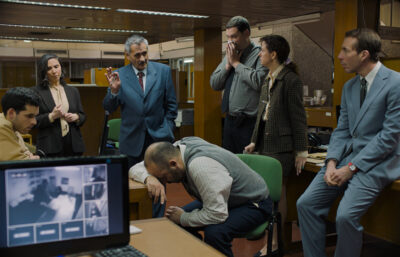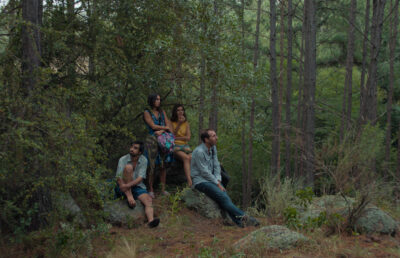

“Rodrigo Moreno’s dreamy and discursive The Delinquents might kick off with one of the most low-key bank robberies anyone has ever attempted, but it’s hard to overstate how thrilling it feels once the thief finally tells us about what he stole.” ~ David Ehrlich, indieWire
Moreno wrote the following about The Delinquents: One issue comes forth naturally when considering this film is the matter of freedom in the face of the mechanical routine imposed by work.
Morán imagines a risky plan to conquer that liberation even when it implies committing a crime and paying his dues. Román is his accessory.
These two men embody a collective fantasy: to break free from the rigors and obligations of the working life in order to attain a higher life filled with freedom.
To choose a better life means leaving the city, your job, even a family, and moving to the countryside, the ocean, the mountains, to give in to leisure, and to stop depending on something or someone. There are both existential and practical matters that make this dream a difficult one: How to make a living? How can I live without all the things I already have? When should I pursue it?
The protagonist solves these questions by virtue of a crime: to rob from a bank (the same bank he´s employed by) the equivalent of his salary times 25 years. It’s not about being millionaires; it’s about living without working all the way to the end.
As is the case in heist movies, the morality of the robbery is not the object, even more so when the target is a bank. I’m invoking the old maxim, always ascribed to Brecht, that it is a worse crime to establish a bank than it is to rob one.
This film, in that sense, takes a more anarchistic viewpoint and does not dwell on these bourgeois matters, but rather contemplates the notion that modern life, as it is intended, obliterates the possibility of a truly free man. It is this tension that Morán’s dream is built upon, that he finally acquires by means of the sacrifice of imprisonment. It is said in a passage of the film that the incarceration of jail for three years and a half is preferable to the incarceration of working for the rest of your life.
